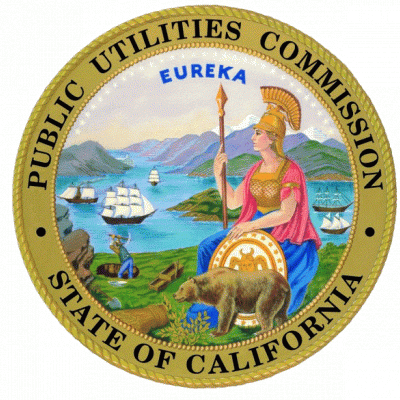May 31, 2017
May 2017 at Policy Integrity:
- Why EPA Enforcement is Irreplaceable,
- Regulatory Rollbacks,
- In the News: Washington Post, Wall Street Journal,
- Attempts at Stealth Repeal,
- Senate Regulatory Reform Bills,
- California Electricity Policy
-

Why EPA Enforcement of Environmental Rules Is Irreplaceable
The Trump Administration’s 2018 budget proposal calls for large cuts to the enforcement budget of the Environmental Protection Agency (EPA) and to EPA grants that fund state enforcement efforts. But despite the Administration’s view that states should take the lead in environmental protection, states have neither the means nor the will to substitute for robust EPA enforcement of federal environmental laws, especially in the absence of federal financial support. Our new issue brief on EPA enforcement explores the financial and political constraints that state regulators already face when implementing federal environmental laws and how the Trump Administration’s budget cuts would exacerbate these problems.
-

In the News: Washington Post, Wall Street Journal
The Trump administration has discussed its desire to create a level playing field in energy markets and emphasize state-level environmental enforcement, but the administration’s commitment to pursuing these goals fairly remains questionable. In a recent piece in the Wall Street Journal, Richard Revesz argues that “an honest attempt to stop picking winners [in the energy sector] would require eliminating all subsidies, many of which favor coal.” He describes numerous coal subsidies, including both direct financial incentives and indirect environmental and health externalities, and how coal’s decline would likely worsen if these advantages were eliminated. A Washington Post op-ed by Revesz and Jack Lienke also argues that, if the administration is serious about prioritizing state-level environmental protection, EPA should grant the petition from Maryland’s Republican governor for federal help in reducing air pollution that blows in from out-of-state power plants. Scott Pruitt has previously conceded that federal intervention is sometimes the only viable solution for cross-state air pollution.
-

Rule Rollbacks and Delays at EPA and Department of the Interior
As the Trump administration takes additional steps toward rolling back regulations issued under President Obama, we are working to support important public safeguards and government transparency. We recently submitted comments to the Department of the Interior’s Office of Natural Resources Revenue (ONRR) and EPA highlighting the social benefits of rules being targeted for repeal. Our comments to the ONNR argue against repealing an Obama-era reform that promised to recover millions of dollars in royalties from mining companies, helping ensure that taxpayers receive fair market value for the use of public lands. In a second submission, we respond to ONRR’s request for comments on whether revisions are necessary to the regulations governing coal, oil, and gas royalties. Our comments to EPA encourage the agency to identify outdated, unnecessary, ineffective, or net-costly regulations for repeal, replacement, or modification rather than prioritize recently promulgated and overwhelmingly cost-benefit justified rules. In a second set of comments to EPA, we argued against delaying a rule on its Risk Management Program without any analysis of the costs of the delay to public health and the environment.
-

Federal Agencies Attempt “Stealth Repeal” of Regulations
In the last few months, several agencies have used stays and delays to put a halt to Obama-era regulations, prior to any attempt to analyze and justify repeal. For example, the Department of Labor delayed implementation of the Fiduciary Rule, which had expanded ethical and legal standards for financial professionals. In a recent Barron’s article, Bethany Davis Noll explained that procedural barriers, including the requirement that the agency seek public comment on the delay and adequately justify the delay, stood in the way of a further delay of that rule. Labor Secretary Acosta later acknowledged that these procedural requirements “are not red tape” and that he would seek the “views of all Americans” before further delaying or repealing the rule. Other agencies, however, continue to avoid these requirements. For example, ONRR stayed its coal valuation reform without notice and comment. We pointed out the procedural problems with that stay in our comments on ONRR’s proposed repeal, and California and New Mexico recently sued ONRR over that stay. EPA also issued multiple stays of the amendments to the Risk Management Program, which had been designed to protect the public and workers from explosions and accidents caused by hazardous air pollutants. We explained in recent comments how the stays violate the Clean Air Act and principles of administrative law.
-

Senate Regulatory Reform Bills
Several bills that recently won Senate committee approval could have devastating impacts on the efficiency and effectiveness of government. Our new fact sheets describe the dangers of these bills. They include the Midnight Rules Relief Act, which would allow Congress to repeal thousands of rules in a single resolution; the Regulatory Accountability Act, which would rewrite notice-and-comment rulemaking procedures and create extraordinarily burdensome hurdles in rule implementation; and the Regulations from the Executive in Need of Scrutiny Act, which would prevent agencies from issuing statutorily required rules unless approved by Congress. We have begun to distribute these fact sheets in order to alert Senators and other stakeholders about the threats these bills pose.
-

Comments on California Electricity Policy
California’s state government is moving forward on electricity and climate policy, likely setting a blueprint for future state and federal action. We submitted comments to the California Public Utilities Commission on factual disputes flagged by stakeholders, related to how utilities will use cost-benefit analysis in decisionmaking. We encouraged staff at CPUC to use the Social Cost of Carbon for its interim greenhouse gas adder, use a 3% discount rate for future damages, include other environmental externalities like air pollution in its analysis, and continue considering societal costs to ensure that the benefits justify the costs of a proposed policy.
